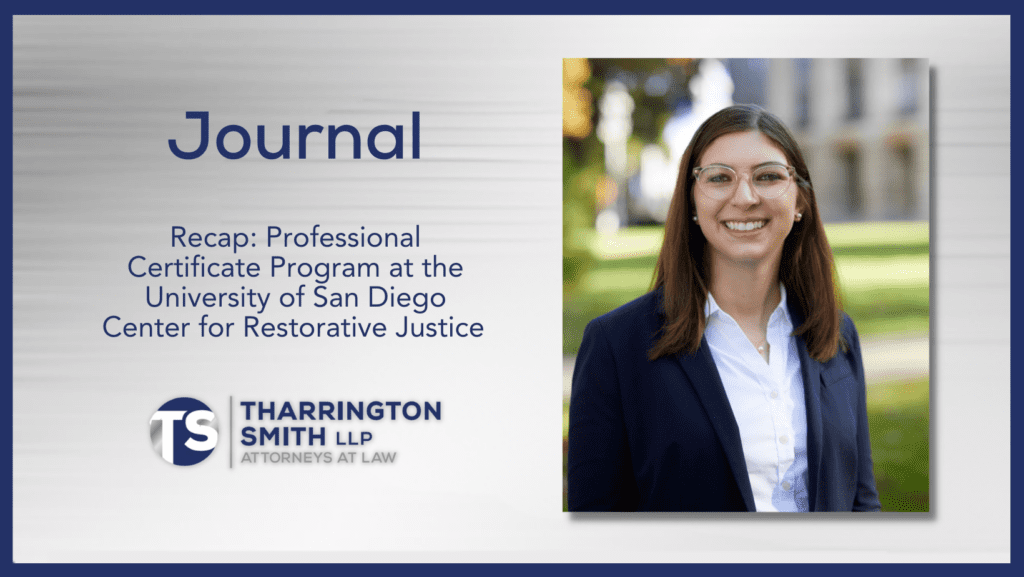By: Maya Weinstein, Tharrington Smith, LLP
March 17, 2022
Restorative Justice (RJ) is a practice with indigenous roots that approaches harm in a different way from the retributive justice system. RJ emphasizes that harm against one person impacts an entire society. The practice is victim-centered and requires that the offender take responsibility and be held accountable, all with the support and involvement of community members. Essentially, the point is to restore the community and individuals back to the position they were in prior to the harm.
My interest in RJ began years ago when I was working on issues around campus sexual violence at institutions of higher education. I had observed the ways in which the reporting and response process worked and ways it did not work. I had seen outcomes that left neither party happy. I had found that the process left most individuals dissatisfied.
A professor introduced me to RJ, and I wrote a research paper on the potential for the use of RJ in instances of campus sexual misconduct. The theory was that if the current process is not working, maybe something more creative that can be tailored to the particular circumstances would make a difference for those going through the process on both sides. My work at this intersection informally continued until I was presented with the opportunity to dig deeper into the roots of the practice and potential applications. I enrolled in the Professional Certificate program at the University of San Diego Center for Restorative Justice, the only program of its kind. It entailed three intensive courses over a 12-month period (and because of the pandemic, I was able to attend all remotely). I learned alongside educators, practitioners, researchers, physicians, lawyers, law enforcement officers – all people interested in exploring a nontraditional path to justice while also asking, “who gets to define justice?”
We learned from formerly incarcerated individuals who had experienced RJ processes and were now educating others, read case studies, reviewed data, and facilitated RJ circles and conferences. We challenged each other’s notions of how to respond to harm and how we, individually, would respond when harmed, and we talked about the situations where it would not be appropriate to employ an RJ process.
In law school, our education typically falls within the process that starts at an arrest and ends as far as the U.S. Supreme Court. It is infrequent that we are given the opportunity to explore alternatives or parallels to the typical system. I enjoyed that this program pushed me to think outside of the box and consider how harms impact a web of people and what those people need. The Professional Certificate Program was a fantastic opportunity to connect with individuals around the country while we asked these difficult questions. Any opportunity to expand my knowledge and think creatively is one I am excited to take, and I am thrilled to have continued my RJ journey with this Professional Certificate Program.

